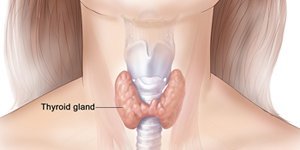| Health / Health News |
Gut microbes may affect cancer treatment
NIH | JUNE 25, 2014
The effectiveness of certain cancer therapies may depend on microbes that live in the intestine, according to a study in mice. The findings suggest that antibiotics used to treat infections might hinder the effects of anti-cancer therapies.

Enterococcus faecalis sp. bacteria. Credit: CDC/ Pete Wardell
The human gut harbors a complex community of microbes, collectively called microbiota. Recent research has revealed many aspects of our health that are affected by intestinal microbiota. For instance, gut microbes can influence both local and body-wide immune system activity and inflammation.
Some cancer therapies work by stimulating anti-cancer immune responses. To investigate whether gut microbes can affect cancer treatments, scientists at NIH’s National Cancer Institute (NCI) studied germ-free mice, raised in sterile conditions from birth. These mice harbor no bacteria.
The team also studied conventionally raised mice given a potent antibiotic cocktail in their drinking water beginning 3 weeks prior to the experiments.
Lymphoma, colon, and melanoma cancer cells were injected under the skin of the mice. The cells formed tumors that grew to a diameter of one-fifth of an inch or more. The tumors were then treated with either an immunotherapy that included CpG-oligonucleotides or with the mainstay chemotherapy drugs oxaliplatin and cisplatin. The immunotherapy stimulates an immune attack on cancer cells, whereas the chemotherapy drugs directly damage tumors.
The researchers found that tumors responded poorly to the immunotherapy in both germ-free mice and mice that received the antibiotic cocktail. The tumors in these mice also responded poorly to oxaliplatin and cisplatin.
Further research showed that the mice produced lower levels of immune signaling molecules called cytokines after treatment than control mice. The germ-free and antibiotic-treated mice also had reduced expression of genes involved in inflammation.
The researchers now plan to study how antibiotics and gut bacteria might affect tumor therapy in people. They will also continue studying mice to characterize the molecular signaling between gut microbes and the immune system.
YOU MAY ALSO LIKE




